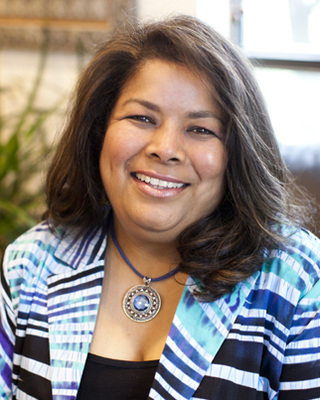Editor’s Note: Strong relationships are at the core of a happy life, but sometimes, dealing with the people in our lives is tricky. That’s why Thrive Global partnered with The Gottman Institute on this advice column, Asking for a Friend. Every week, Gottman’s relationship experts will answer your most pressing questions about navigating relationships—with romantic partners, family members, coworkers, friends, and more. Have a question? Send it to [email protected]!
Q:
I recently realized that I’m much more sensitive than I had thought, and it’s one of the main reasons why so many of my friendships fail. I get offended by any small thing and take it personally. How do I control this so I can keep my sensitivity from affecting my friendships? —C.B.
A:
Let’s begin by understanding what it means to be a sensitive person. In her book, The Highly Sensitive Person, Elaine Aron describes it this way:
“Having a sensitive nervous system is normal, a basically neutral trait. You probably inherited it. It occurs is about 15-20% of the population. It means you are aware of subtleties in your surrounding… more easily overwhelmed when you have been out in a highly stimulating environment for too long, bombarded by sights and sounds until you are exhausted in a nervous-system sort of way.”
It also means that you may empathize too easily or take in other people’s emotions, try to process everything in-depth, and become emotionally reactive.
All societies need sensitive people. We are the artists, the teachers, the healers, and the caregivers. So a sensitive nervous system gives us advantages but it also has its drawbacks. One of them is the tendency to become hypervigilant, suspicious, or overwhelmed by subtle signals or ambiguous social situations. When this happens, the sensitive person may find it difficult to read other people accurately, let small things go, or have an appropriate emotional reaction to events (without overreacting). Hypervigilance may be a sign that your radar is set too high and your nervous system has become anxious or fearful of how you will handle social situations.
Here are five ideas to help you manage sensitivity, particularly in friendships:
1) Tell friends and partners early on about your sensitivity, and see how they react.
If they respond with empathy or show care and concern about being a good friend, this is a good sign. If they dismiss or discount your sensitivity, or worse, tell you “toughen up,” watch out. Most people have some sensitivities or eccentricities and being a good friend, partner, or parent is about knowing each other’s buttons, practicing empathy, and not taking it personally when there are misunderstandings.
2) Learn to press your “pause” button.
If you take offense at small things, you may tend towards hyper-arousal or physiological reactivity. Your heart and your brain communicate with each other thousands of times a day. When a social situation creates tension, it is picked up by your nervous system in a very rapid and automatic manner and dealt with without much conscious thought. You can improve your ability to manage these situations by building awareness when a social signal has triggered a reaction within you, and slowing yourself down internally. Learn to put a “pause” button inside of you and take deep breaths before allowing your heart or brain to jump to conclusions or take action.
3) Talk to yourself with compassion.
Once you have become more aware and have slowed things down internally, you can then talk to yourself with empathy and gentleness. One of the big challenges of having a sensitive personality is your ability to chastise or scold yourself for your reaction. You may not be practicing enough self-compassion. Rather than telling yourself not to react, consider asking the anxious part inside of you what it is reacting to and what it needs from you in order to not take offense. You may be surprised at how often the sensitivity is about the internal dialogue more than the external signals.
4. Pick the offenses you want to address.
Take a step back and look at the situation beyond the moment. If your friend says something that offends you, how do you respond and what consequences tend to accompany your responses? If you are quick to show that you have taken offense, you may be triggering defensiveness in your friend because they may feel blamed. Consider allowing the moment to pass and making the choice to discuss it with your friend the next day. Or consider choosing to address only some of the offenses and not all of them. It might help if you keep a journal of the following:
- All the social moments that caused you tension or hurt for two weeks
- What your thoughts and emotions were in the moment
- How you responded to the hurt and whether it was successful
Tracking our social habits and behaviors over time gives us an opportunity to be our own social scientist. You may discover that certain friends, in certain situations, or certain topics trigger you often while others are much easier to ignore. That would be valuable information for you to have.
5) Develop a public persona.
Finally the most important thing you can do for yourself is to learn more about being a highly sensitive person. Read books, watch videos online, or talk to people you know to see if some of your friends can relate. Find a community of sensitive people and make friends with some of them. Develop a public persona that you can bring online when dealing with people who don’t know about your sensitivity. In other words, create a social armor that you can put on when you need to so you can relax and enjoy yourself without taking things too much to heart.
Being a highly sensitive person is not only normal, it is a gift. Find ways to capitalize on this gift, find people who will appreciate you for who you already are and don’t try to change you, and find places where you can truly relax and experience your authentic self.
Read more “Asking for a Friend” columns here.
Follow us on Facebook for all the latest news on how you can keep Thriving.
More from Thrive Global:
How Do You Make Friends as an Adult?


